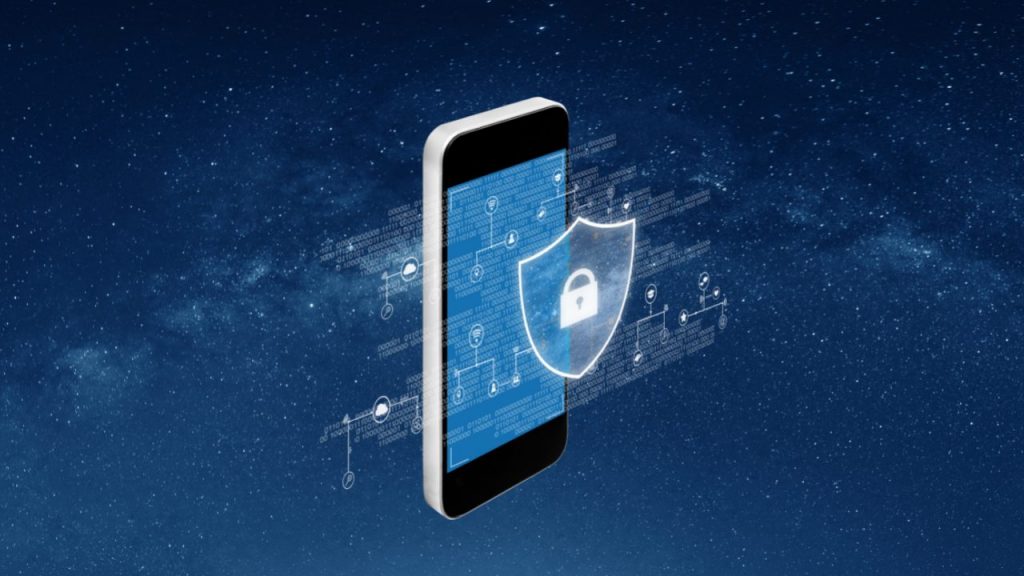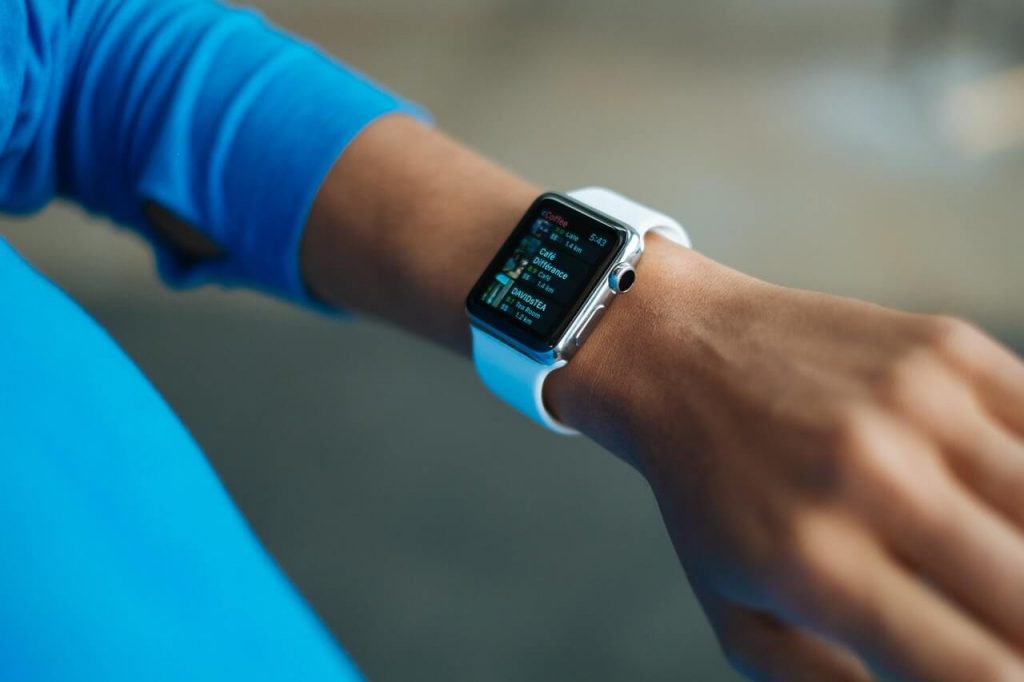Last Updated on December 15, 2023

- Myth #1: Mobile Security Isn’t That Important
- Myth #2: Mobile Security Will Breach Employee Privacy
- Myth #3: iOS Devices Are Secure
- Myth #4: Wearable Tech Doesn’t Need To Be Protected
- Myth #5: Employees Should Be Responsible For Mobile Tech Safety
- Myth #6: Nothing Can Be Done If A Device Is Lost Or Stolen
- Myth #7: Mobile Antivirus Does Everything Needed To Protect Devices
- Myth #8: MDM Will Protect Against Most Threats
- Myth #9: Mobile Devices Are Less Secure Than Desktop Devices
- Myth #10: It’s Harder To Monitor Mobile Devices
Mobile tech has long been important in the workplace, as more and more companies adopted it. This is even more so when the COVID-19 pandemic has forced workers to work from home. With the rise of mobile tech, there have been lots of worries and myths surrounding mobile security. This article will introduce you to some of the most popular myths out there and what you should really know about mobile security.
Myth #1: Mobile Security Isn’t That Important
This is one of the most common myths out there right now, and possibly one of the most dangerous ones. Workplace PCs are protected against security threats with anti-virus security, firewalls, and so on. This is designed to protect against any incoming online attacks. However, there are business owners out there who do not believe that mobile security is important.
That is not true. All incoming risks will be coming from online, and a mobile device connects to the internet faces the same risks as a desktop PC would. It is so easy to open up a mobile device to risk, too. Mobile devices are under even greater cybersecurity risks since this is where most people complete their personal and work activities. For example, connecting to a malicious public WiFi can easily trigger data loss or data breach easily.

There are some industries out there that are understanding the risks when it comes to mobile security. For example, most banks have procedures in place to protect against mobile threats. This is because with so many systems being online, they are very vulnerable to attacks and robbery. While an in-person robbery may be rather infrequent, online the bank can be fending against attempts up to 20 to 30 times per hour. They cannot afford to have any chinks in their armor, and so they invest in mobile security.
There are some different ways that your networks can be breached through mobile attacks. Some common examples include infected apps and system exploits. With mobile technology evolving all the time, you cannot afford to ignore mobile security. Just one infected mobile device can affect your entire network.
Myth #2: Mobile Security Will Breach Employee Privacy
Another very common mobile device security risk myth is that if you implement mobile security, then this is going to be a breach of employee privacy. This myth has risen up more as businesses have started implementing Bring Your Own Devices (BYOD) policies with the help of MDM software.
Employees will be worried about their privacy if you need them to use specific antivirus and security measures. They believe that the programs or apps installed will allow the company to spy on them, and examine private data on their devices. Employees may feel such measures are invasive and think why does their workplace get a say on how they use their device?
The problem is that the phone or mobile device is being used for work, and so there will be sensitive data on it. Emails, messages, and even lists and notes the employee has made to themselves. With so much here, you have to protect it no matter what device the data is on.

Any above-board security software is incapable of doing this, though. While a mobile security platform will allow admins to set security measures in place, it cannot allow them to examine any data on a device. That way, employees know they can use the software to protect their device and the network, and any personal data is protected.
Myth #3: iOS Devices Are Secure
Many people believe that if they have an iOS device, then they do not need to worry about a thing. Apple has made a selling point of how secure their devices are, and how they make them safer than the competition. It is true that they use some strict safety procedures and that attacks on iOS devices are less common, so people do not need to worry about using extra security measures on these devices.
The problem is while those attacks are less common, they do still happen. ‘Recently, a loophole was found in iOS that allows hackers to distribute apps without going through the Apple App Store’ says writer Lily-Grace Downs, from Boom Essays. ‘While some developers are using this to create genuine apps, there are plenty out there that are distributing malicious software this way.’
As such, iOS devices can very much be attacked and be a way into your business’ network. Some of this can be mitigated by properly educating staff on how to use iOS devices, and to only download apps directly from the app store itself. However, things are changing all the time, and you want to be sure that your network is always protected. That is why you need to enforce a strict mobile security policy on all devices.
Myth #4: Wearable Tech Doesn’t Need To Be Protected
One of the biggest advances in tech right now is wearable tech. Things like smartwatches and fitness trackers can be worn by employees, and many even use them to stay on top of things at work. For example, if an employee is moving around a lot during the workday, it can be a lot easier to keep on top of emails through their smartwatch.

There is an idea that wearable tech is not a security risk, and so these devices often are not covered by company security networks. Again though, you have to remember that wearable devices still connect to the internet, just like any other mobile device does. Therefore, you need to ensure they are covered by your security. All wearable tech used for work or brought into a work building needs to be covered by the software you use, otherwise, staff should not be using it for work at all.
Myth #5: Employees Should Be Responsible For Mobile Tech Safety
There are company leaders out there that believe that employees should be the ones responsible for the security of the tech they use for their devices. If they are the ones who own the tech, then it is on them to make it secure, right?
This is a very old-fashioned way of thinking, and it is not the way you should be approaching mobile device security. If you are leaving your security up to employees, then you are going to leave large holes in your security.
You should be able to rely on employees to be smart about how they use their devices, but you also need to have your own security in place, too. Take your own measures on security, and also educate your staff about safety when it comes to using mobile devices.
Myth #6: Nothing Can Be Done If A Device Is Lost Or Stolen
While mobile devices are becoming more prevalent than ever in businesses, there are some out there that are still resisting them. This is because they believe if a device is lost or stolen, there is nothing they can do. Any sensitive data could be stolen off the device, putting the business at risk.
The good news is, this is not true at all. Tech blogger Morgan Hurley from OX Essays says, ‘If you’re using mobile security software on devices, there are steps you can take. Most systems come with remote locking and wiping protocols, so even if someone gets hold of a device, they won’t be able to get any data off it.’ With mobile device management, IT admins can remotely lock or wipe out data on a specific device from a centralized dashboard without being on-site.
This makes it much more feasible to use mobile devices, as there do not need to be any worries about security, should a device go missing.

Myth #7: Mobile Antivirus Does Everything Needed To Protect Devices
These days you can use mobile antivirus to protect mobile devices. These software packages are widely available, and many already use them for mobile devices. You may think that they are enough to protect a device against attacks, but not when it comes to your business.
The problem with these packages is that they are not designed for ‘zero day’ attacks, or malware that has been newly designed. They are designed to check for already known viruses, and remove or block them wherever these are encountered. That works fine on a personal device, but not for your business devices.
In fact, the antivirus on a mobile device would never be able to keep up, as new cyber threats are being made every single day. To really counter these threats, you need layers of protection. Antivirus will pick up on known threats, while malware coverage and zero day firewalls will help keep everything else out.
Myth #8: MDM Will Protect Against Most Threats
Some business owners understand the infinite threats out there, but do not have enough protection against them. To solve this issue, they may consider implementing mobile device management (MDM) or enterprise mobility management (EMM), and believe that this is enough to protect their devices against attack.
Much like mobile antivirus, MDM and EMM can protect business devices from a decent amount of online threats. However, they cannot detect recently created malware, leaving it free to cause damage and expose your business’ data. One common way cybercriminals like to get into mobile devices is by ‘rooting’ them. This is when they gain root access, which allows them to make all kinds of changes to your device.
You cannot simply rely on MDM and EMM to protect your devices from all cyber attacks. You will need multi-layered security as described above to help you truly protect your data.
Myth #9: Mobile Devices Are Less Secure Than Desktop Devices
After reading all these myths, and the ways mobile devices can be compromised, it is easy to believe that mobile devices are less secure than desktop devices. Because of this, it is tempting not to allow the use of mobile devices at all. While you would think that would make you more secure, it actually just makes work harder. That is especially true in the current climate, where you need mobile devices in order for work to be done at all.
In fact, the opposite is actually true. Thin clients, such as mobile phones, are ahead of the curve in some aspects when it comes to security. Thanks to their nature, most data they handle is actually stored to the cloud rather than on a hard drive or flash drive. That leaves less opportunity for cybercriminals to steal data and cause damage.
There are other advantages that you should be aware of, too. For example, on a mobile device, you have the option to remotely secure data, trigger panic alarms, track location, and more. As such, mobile devices are as secure as desktops, if not more secure, when taking the appropriate steps.
Myth #10: It’s Harder To Monitor Mobile Devices
It is true that it is going to be harder to track personal devices if they are being used for work, but if you are giving employees company-owned laptops or devices, then you really can monitor them remotely for security threats.
As mentioned in myth #2, you cannot monitor a mobile device and see the data on it. However, if you are using the right security software, then you can build systems that let you monitor the health of any mobile device. It is something you should consider doing, to keep everything secure.
For example, you can have systems in place that push security updates every few days. These app and software updates will help keep the devices secure from unauthorized access and potential data breach.

As you have seen, there are all kinds of myths around mobile tech and security. It is easy to assume that they are safe, as you feel as though they already have all the right systems in place to protect them. While that may work for personal devices, you need to have more secure, multi-layered systems in place for it.
Also, there is the overarching idea that mobile devices are actually less secure than desktops. That can dissuade some business owners from deploying mobile devices and tablets to streamline their operations. Yet, with the right mobile device management software and security policies in place, organizations can actually offer more protection than their desktop counterparts.
With 10 of the top myths busted, you can be more secure in using mobile devices in your business. Talk to a security expert about what you will need, and ensure that you are taking all steps needed to protect your data.
Author’s Bio: Emily Henry is a tech writer for State Of Writing, where she covers topics about mobile technologies and mobile device security-related issues that are happening in current days.
[…] are a lot of mobile security myths, and much of this comes from the complicated nature of the topic. With that in mind, we’ll try to […]